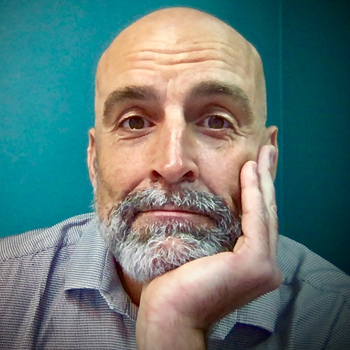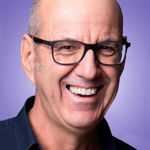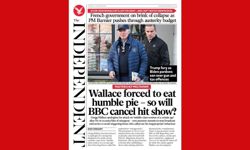
Read the headlines, and the days of local news – local newspapers, especially – are numbered. But not if publishers are bold and change, believes Archant’s Chief Content Officer Matt Kelly. For which read re-thinking everything from editorial strategies and business models to approaches to local communities and, even, attitudes towards ‘news’.
“Regional newspapers are in an awful lot of trouble. We have reached a point where years and years of missed opportunity to invest are now coming home to roost,” he readily observes, blaming this in part on a lack of self-esteem.
“In the past, I don’t think they’ve had the confidence to say, ‘Our model – what we do – is fundamentally different to what a national newspaper does, and if our website looks like the Daily Telegraph website, there is something very wrong’.”
Somewhere along the way, something important that must be translated from a local newspaper in print to a local website online went missing, Kelly adds: “And we’ve got to work out what that element is, so people we are selling our newspapers to are also willing and understanding enough to want to buy our digital offering.”

The reason’s simple.
“What’s becoming very clear is the model around digital display advertising – in other words, try and harness as many clicks as you can with paying attention to who they are and what they want secondary – is never going to make enough money to support the cost of a newsroom as it is today.”
And this matters.
Not just to Kelly – who cut his teeth in local journalism as a reporter and sub-editor on the Formby Times and Liverpool Echo before joining the Daily Mirror, where he worked as a journalist and then executive (his roles there included publisher and director of content of Mirror Group Digital) – but to ordinary people and the democracy in which they live.
“You’ve got to get to the point where people we’ve groomed since digital newspapers began to assume digital news is free, understand local news is a very important element of the social set up,” he believes.
“And that without it there, you fear for communities who can be hard done by and abused by miscreants, the kind of people we are on the case of; you end up with something less cohesive.”
Kelly joined Archant in 2015 from regional newspaper group Local World, where he was group digital director. His brief is content strategy and execution across all platforms and products. In 2016, he oversaw Archant’s launch of pro EU weekly newspaper The New European – initially conceived as a pop-up to chronicle the extraordinary events of the summer of 2016 surrounding the Brexit referendum – then edited it for the next three years.
Clicks from the large, loyal and local audience are the only clicks I am interested in.
Project Neon
More recently, he has been leading Project Neon, a three-year partnership initiative with Google to develop a new and sustainable model for local news. This is focused on building three local online news communities.
The first, Peterborough Matters, went live earlier this year in February. By September, it had built to 1.5m page views per month – a considerable achievement given it launched just ahead of a global pandemic.
When it comes to local publishing, Kelly says, relevance is all.
“Clicks from the large, loyal and local audience are the only clicks I am interested in,” he explains. “I’m interested in understanding how do I go from so-called loyal users being someone who might click on our sites one to two times a week to three to four times a day.”
It’s about more than simply turning a print audience into a digital audience. Rather, it’s about creating a new kind of digital platform people in a certain community love so much they either visit in large numbers numerous times a day, or willingly pay for, to keep it going.
This means making local content on digital more a part of people’s lives rather than the take-it-or-leave-it offering many websites have become. Which makes local news online in its current form the problem to address, not local news per se.
For a start, publishers need to start thinking beyond ‘news’ – because at one level, there is unlikely to be enough going on each day in one particular local area that is sufficiently ‘newsworthy’ to make a site compelling.
Besides, news is just one content element important to the role a site can and should play in supporting a healthy community, Kelly says. For example, significant potential lies in a local news site acting as a facilitator to bring people from a community together online, but this is often overlooked.
“I think the role of local media has to be about becoming part of the solution – being very constructive in our approach, and open to all sorts of other views: not just saying ‘We are the only ones who can do local journalism’,” he states.
“We can stand back and be arrogant or open our ears more and listen to what people in a local community are generally interested in and find ways to play a role in making those passions fruitful and enjoyable for them.”
That’s the way local press can and will build value – and, once that value is clear, make it pay.
The model around digital display advertising is never going to make enough money to support the cost of a newsroom.

You can hear Matt Kelly being interviewed by Ciar Byrne on a recent episode of The InPublishing Podcast, which was sponsored by Acorn Web Offset, the Yorkshire-based specialist A5 and A4 magazine printer.
This article was first published in InPublishing magazine. If you would like to be added to the free mailing list, please register here.












